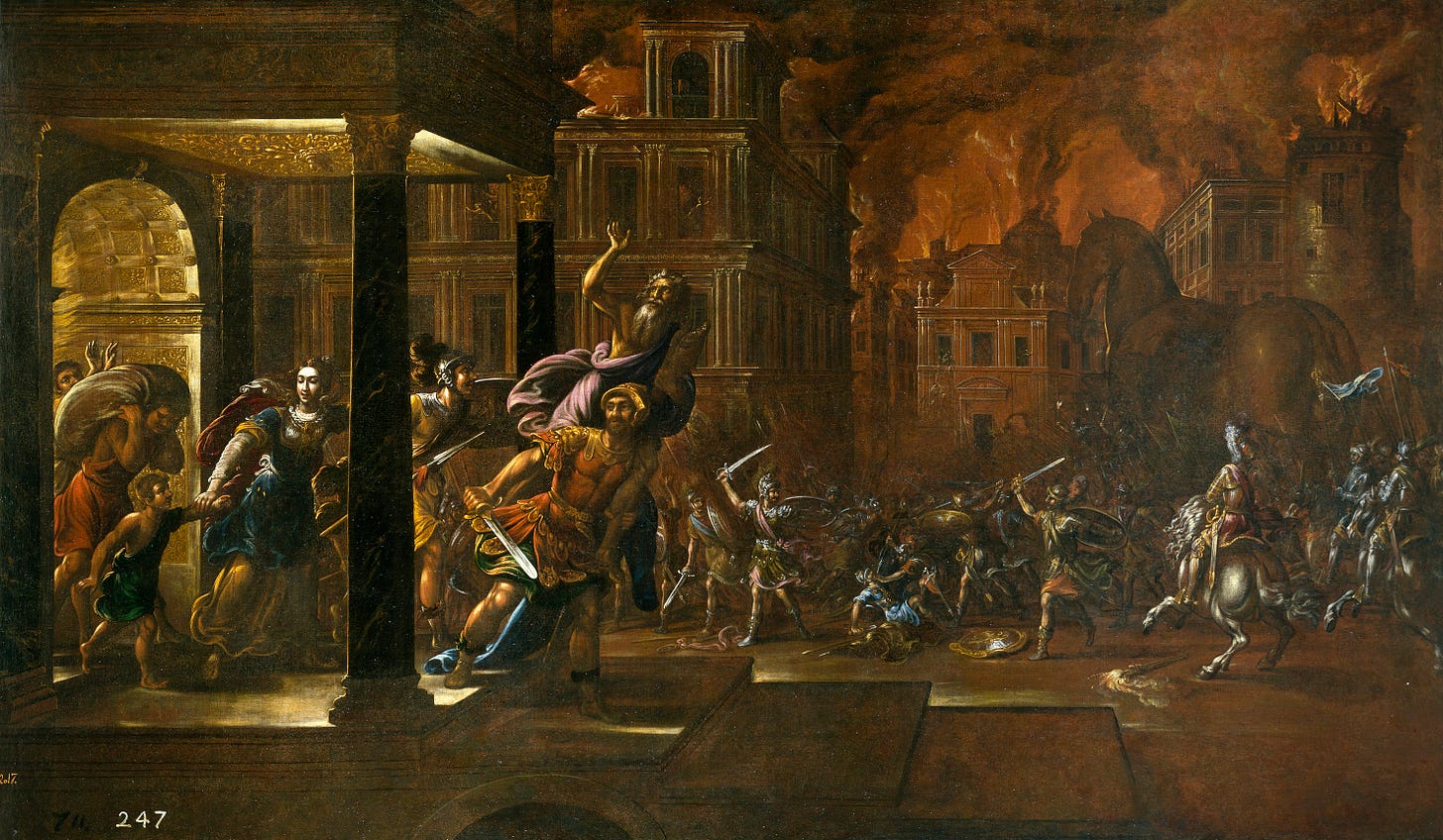This line, from Hesiod’s Works and Days, has stuck in my mind since first reading it the better part of two years ago. There is a tendency when discussing civilisations towards either exceptionalism or catastrophising about our own. Both arguments still have a number of supporting indicators to lean on, although if the survival of a civilisation primarily relies on the wellbeing (particularly in a mental sense) of its inhabitants then some long-term trends indicate a gloomy outlook. Such views are embodied by a number of prominent historical authors, with the twentieth-century German historian Oswald Spengler perhaps the epitome of civilisational pessimism. Aside from The Decline of the West, the two-volume history which gave him this reputation, the much slimmer Man and Technics offers a scathing judgment of what he saw as the West’s inevitable fate. It is from the latter work we find such quotes as “optimism is cowardice,” as well as Spengler’s famous call to “hold on to the lost position… like that Roman soldier… in Pompeii, who died because they forgot to relieve him when Vesuvius erupted.”
If Spengler’s view on the current age is the pessimistic one, then Hesiod possesses something approximating a realist outlook, and a much healthier one at that. Hesiod’s view of history, as explored in a previous essay, was a linear degenerative timeline but included a couple of anomalously hopeful comments when discussing his contemporary Iron Age. One can deduce that such statements, including the quote spurring this piece, were intentional, yet they more crucially reach for an aspect of perennial truth about the lives of civilisations and their inhabitants.
The presence of good people, in this context those who embody the virtues of and build upon their society, are a given in the ascendant eras of any civilisation. This does not, however, preclude their appearances in later periods or indeed in a civilisation’s dying days. Whilst Rome was experiencing its protracted death throes, Augustine of Hippo revolutionised Christian theology and philosophy in time for the next civilisation, writing works such as The City of God. When the pre-Christian Norse civilisation had all but extended their dominion to the future cornerstone of Western civilisation in the British Isles, Alfred the Great and a small band of his followers staged a decisive comeback from the marshes of Somerset. After the final decades of the Bronze Age saw the collapse or crippling of most civilisations in the Eastern Mediterranean and Near East, the Phoenicians managed to pick up the pieces. More examples exist if one looks for them, both of legendary reversals in fortune and individuals who were unknowingly laying the future’s foundations. Arguably, this shows the instances where genuine human progress was safeguarded from the variegated forces which might undo it.
Pessimistic generalisations, particularly in a way which loses sight of the exceptions to any seeming rule in historical narratives, disrespects the fact about human nature Hesiod saw around 2700 years ago. Of course, many unwittingly conform to the average of their day and whatever trajectory that entails; statisticians would not be able to calculate such means and trends otherwise. However, what decides a civilisation’s future is whether those who are good fulfil their potential. Hesiod kept open the notion of a resurgence in human fortunes following the conclusion of his age, yet simultaneously predicted thorough damnation for all. Taking the simpler route of concluding that all efforts will be for naught is clearly a self-fulfilling prophecy, since even at the peaks of civilisations the tasks of innovating and creating great works are by no means easy. Perhaps all constructive efforts undertaken today will crumble into dust or be swept away by the sands of time, but inaction makes certain the possibility that all prior tangible hallmarks of civilisation will receive the same fate. Standing upon the shoulders of giants cannot engender complacency either, as the idiom implies a duty for work to be undertaken in the present so that past efforts do not wither away and future endeavours can still be supported. For the responsibilities demanded by civilisation to uphold it are constant, and so long as there is some good mingled with the evils (and apathy) we neglect them to our collective peril.



